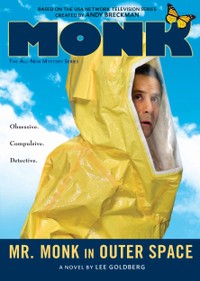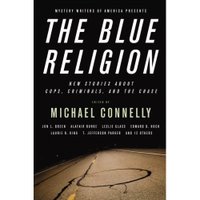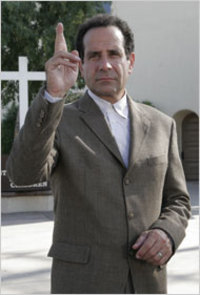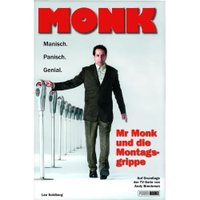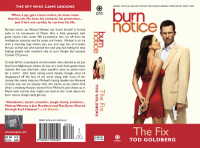 My brother Tod writes today about the fun he’s having writing the BURN NOTICE books…and what he’s learning about himself as a writer
My brother Tod writes today about the fun he’s having writing the BURN NOTICE books…and what he’s learning about himself as a writer
along the way:
I must say that writing this sort of comic noir is pretty damn fun to
do. I’ve got two more to write after this one, each with a
substantially longer deadline, thank god, and I’ve really had to teach
myself that I don’t need to have an unreliable narrator facing some
sort of mortal pain in every line, like many of my stories and novels
previously have had, and that it’s okay to just have fun, line by line,
day by day, writing for the entertainment of it all. I’ve been asked by
a lot of people why I decided to do these books and my answer has been
the same each time: It seemed like it would be pretty cool. It seemed
like I’d reach about 50,000 more readers than I usually do. It seemed
like a great way to learn, again, how to write something completely out
of my comfort zone, to challenge myself in new and interesting ways.
I knew he’d like it. It will be interesting to see how he feels a year from now after he’s written two of these books and is well into his third.
Tod asked me the other day how I kept up the pace. That’s when I realized that I’ve written 17 novels since 2003, 15 of which have been published, one that’s coming in July, and one that I’m in the midst of now.
I didn’t really have answer for him. I like to write, for one thing. And I live in fear…writing is how I pay the bills and if I am not writing, I start worrying about ending up boiling hamburgers at McDonalds while my wife sells her body on Sunset.
That’s not to say I don’t feel the pressure, but lately it has eased up a bit. Since I dropped the DIAGNOSIS MURDER books, I’m not writing a new book every 90 days any more…and, at the moment, I’m not running a TV series or jetting back and forth to Europe every two weeks either. So writing this latest book hasn’t been quite the same kind of juggling act, though I am certainly feeling my deadline approaching in eight weeks.
And I am eager to write something which, as Tod says, takes me outside of my comfort zone.
"The Past Tense" novel in the DIAGNOSIS MURDER series was like that — I set the book in the 1960s (I’d never written anything that was "present day") and wrote Mark Sloan from first-person instead of third person. It was scary and tough and I was certain I would fail. But it turned out to be the best-reviewed book in the series and one of the few times a paperback original TV tie-in got noticed in the mainstream press. I’m very proud of it. I also tried a little narrative-trick in the DIAGNOSIS MURDER novel "The Double Life" that was scary, and I like to think that I pulled it off. Whether I did or not, it gave me a thrill just trying it and powered me through whatever exhaustion I was feeling at the time.
The first MONK was also a challenge for me — writing in first person from a woman’s point-of-view. It worked, too. But now I have done that for seven books and am comfortable with it. I need to shake myself up again. I don’t know what that new writing challenge will be, but hopefully 2008 will be the year I take it on.


